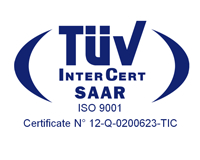Four Radiolabs BoD members in the list of the World’s Top Scientists
 Collective efforts on closing innovation gap are needed on a par between research institutions and industries for developing breakthrough technologies and scaling up products at lower cost and time.
Collective efforts on closing innovation gap are needed on a par between research institutions and industries for developing breakthrough technologies and scaling up products at lower cost and time.
Radiolabs, a no-profit public-private consortium has created a talented research team to translate innovation into commercialisation thanks to the collaboration between three Universities and three industries. Focus is on new technologies for safety-critical intelligent transport systems as Positioning, Connectivity and Cybersecurity. The strategy is to leverage on synergies and osmosis of best practices in common for the Rail, Automotive and Maritime automation in order to develop world-leading scalable technologies and validation tools, accelerating their utilization.
Sustainable autonomous mobility requires an integrated approach for the vehicle’s safe and precise positioning, communications in the move and cybersecurity to guarantee high level of autonomy, resiliency and to exploit the potential of satellite and navigation technologies in sectors characterised by high level of safety, security and competitivity.
Excellency through Research is a fundamental pillar of Radiolabs mission with the valuable contributions of the universities providing multi-disciplinary know-how, laboratories and scientists as the four members of the Radiolabs board who have been recently included in the list of the World’s Top 2% Scientists elaborated by University of Stanford in collaboration with Elsevier. In this ranking of researchers distinguished for quality and dissemination of publications within the scientific communities there are Alessandro Neri (president Radiolabs, University Roma TRE), Paola Inverardi (vice president Radiolabs, rector Gran Sasso Science Institute), Filiberto Bilotti (University Roma TRE) and Franco Mazzenga (University Roma Tor Vergata).
This outstanding recognition is a further stimulus for our talents to specialize innovation in leading radically new technologies through research networks and high-level education systems to prepare the workforce necessary for mastering the technological change.
LINK: Updated science-wide author databases of standardized citation indicators




